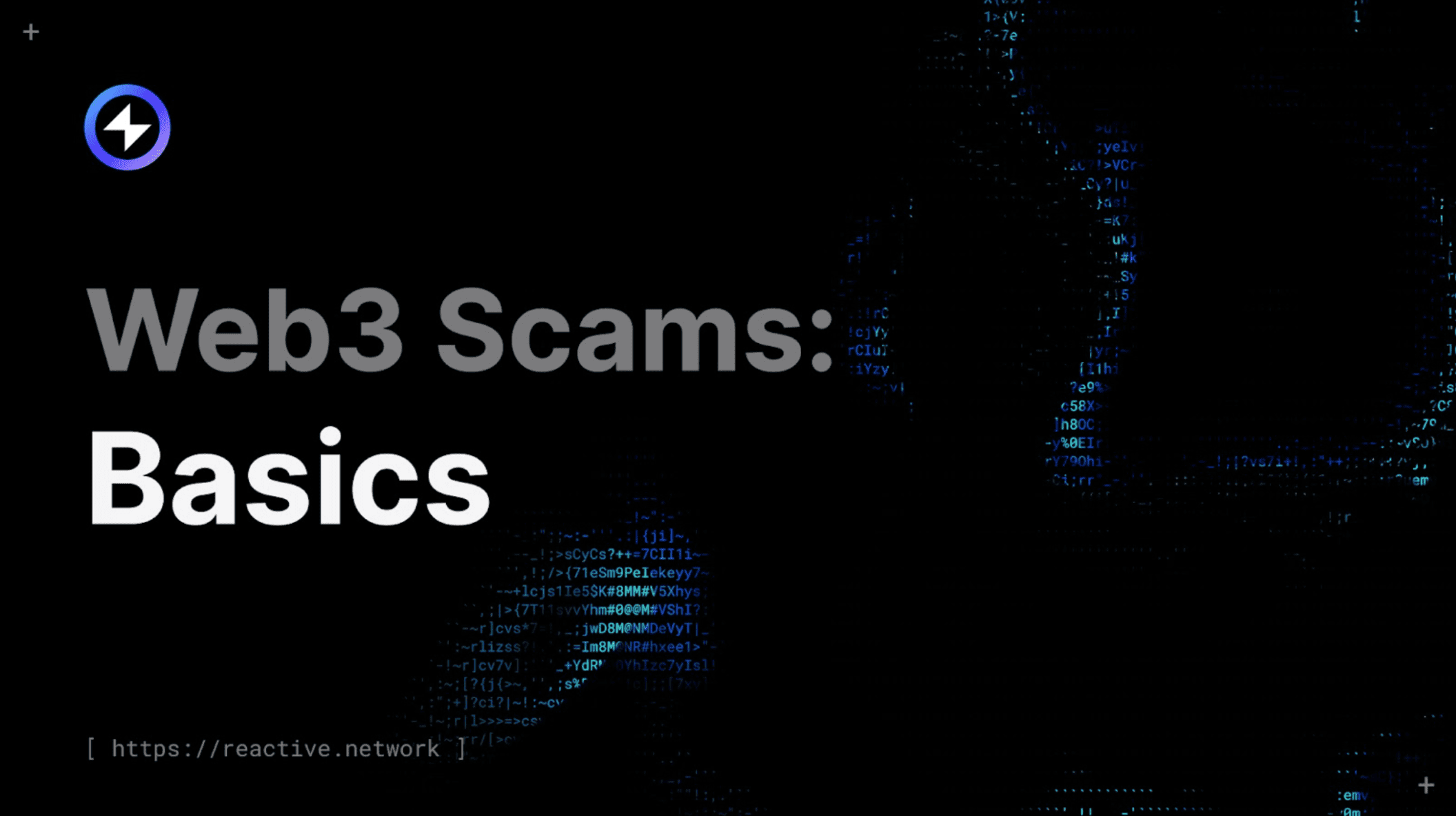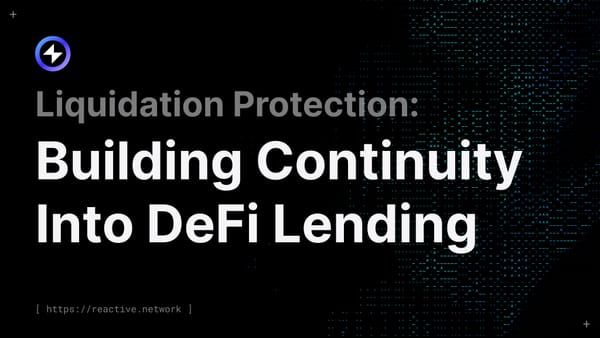Web3 Scams: The Basics

The blockchain world is full of promise: freedom, privacy, and control over your own assets. On Ethereum and similar chains like Polygon or Binance Smart Chain, you can trade tokens, mint NFTs, join digital communities, or even earn passive income, all without a bank or an ID.
But here’s the truth most people don’t hear early enough: if you lose your crypto to a scam or mistake, it’s gone. This isn’t like calling your bank to dispute a charge. In the blockchain world, you are your own bank. That’s powerful but also dangerous if you don’t understand the basics. So let’s fix that.
Hot, Cold, and Burner
Your wallet is how you interact with the blockchain. Think of it as your passport, bank, and vault rolled into one app. Every wallet has two key parts:
- Public Address - like your email. You can share it. People send you crypto here.
- Private Key / Seed Phrase - like your master password. You must keep this secret. If someone gets it, they can empty your wallet instantly.
If you’re new, MetaMask is a common starting point. It’s a hot wallet, easy to set up, convenient to use. But don’t treat it like a vault. It’s more like walking around with cash in your pocket.
You’ll mostly use hot or burner wallets when starting out. Cold wallets come in later when you need serious long-term protection for valuable assets.
A burner wallet is a disposable wallet you use for risky or unknown projects. It holds just enough funds to interact, but nothing more. If a site tricks you into approving a malicious transaction, you won’t lose your main assets, just what’s in the burner.
Before You Click “Connect”
This “Connect Wallet” button is everywhere in Web3. It sounds like logging in with Google, but it’s not. Connecting your wallet can expose far more than you think.
When you connect, you allow the site to see your wallet address and balances. You may also be asked to sign a message or approve a transaction, and if you're not careful, that signature could give the site permission to move your tokens or NFTs.
Scammers exploit this step all the time. Here are a few of their favorite tricks:
- Fake Wallet Popups: Some malicious websites mimic MetaMask or WalletConnect. They prompt you to “reconnect” or “import your wallet,” but it’s a trap designed to steal your private key or trick you into signing a harmful transaction.
- Social Engineering via DMs and Forums: Scammers often pose as developers, moderators, or support agents on Discord, Telegram, or X. They might DM you with offers of help, “urgent issues,” airdrops, or exclusive opportunities. Their goal is always the same, get you to reveal your seed phrase or approve a malicious transaction.
Rules to Avoid Scams
You don’t need to know code to avoid 90% of scams. Just follow these golden rules:
Never share your seed phrase: No support team, no admin, no developer will ever ask for it. If they do, they’re a scammer. Period.
Bookmark real sites: Scammers make fake versions of popular sites (like Uniswap or Aave). Search engines can even show the fake ones first. Only use trusted links or bookmarks.
Avoid clicking links in DMs: Whether on Discord, Telegram, or X, private messages offering “support” are usually scams.
Use a burner wallet for new or unknown projects: Even if a project looks decent, better to be cautious.
Don’t rush: Scams often pressure you with FOMO like “Only the first 100 wallets can mint this NFT!” Take a breath. Real opportunities don’t disappear in 60 seconds.
Recap
If you’ve made it this far, you’ve already taken the most important step: slowing down and learning before jumping in. You now understand that a crypto wallet isn’t just an app, it’s your identity, your vault, and your only key to access funds. Hot wallets like MetaMask are great for getting started, but they’re not built for long-term storage. Cold wallets add serious protection, and burner wallets give you a safety buffer when exploring new or untrusted projects.
You’ve also seen that clicking “Connect Wallet” isn’t just logging in. That button can open the door to everything in your wallet, especially if you blindly sign messages or approve transactions. Scammers know most people won’t read the fine print. Now you will.
Most importantly, you’ve seen how simple habits can protect you. Bookmark real sites. Ignore random messages offering help. Never, ever share your seed phrase. And above all, don’t rush. If something online is pushing you to act fast, that’s your signal to slow down.
About Reactive Network
The Reactive Network, pioneered by PARSIQ, ushers in a new wave of blockchain innovation through its Reactive Smart Contracts (RSCs). These advanced contracts can autonomously execute based on specific on-chain events, eliminating the need for off-chain computation and heralding a seamless cross-chain ecosystem vital for Web3’s growth.
Central to this breakthrough is the Inversion of Control (IoC) framework, which redefines smart contracts and decentralized applications (DApps) by imbuing them with unparalleled autonomy, efficiency, and interactivity. By marrying RSCs with IoC, Reactive Network is setting the stage for a transformative blockchain era, characterized by enhanced interoperability and the robust, user-friendly foundation Web3 demands.
Website | Blog | Twitter | Telegram | Discord | Docs





